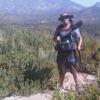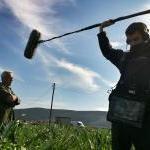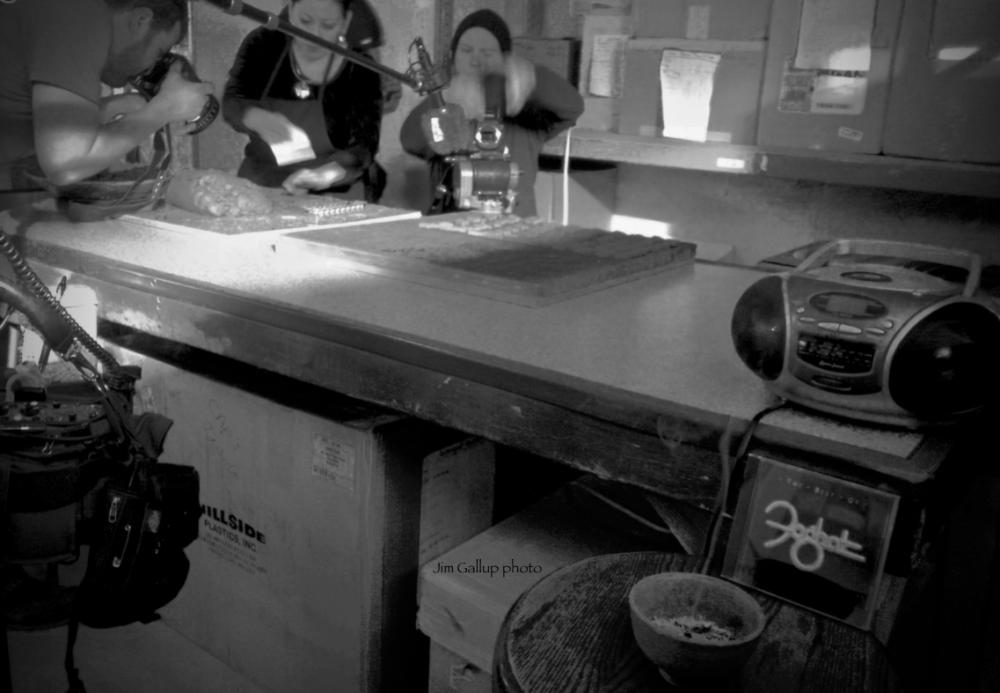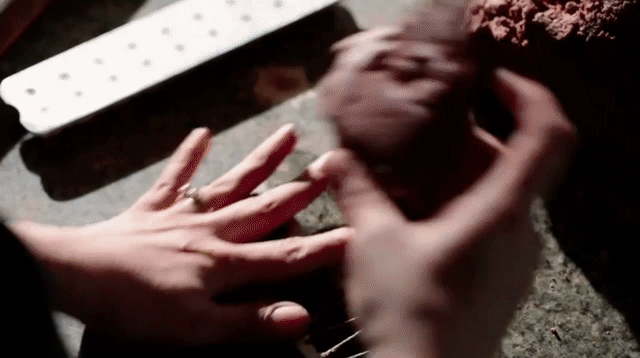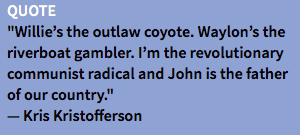-
Posts
515 -
Joined
Contact Methods
-
Website URL
http://www.newmexicosoundrecordist.com/
Profile Information
-
Location
Albuquerque / Santa Fe
-
About
O-T-S bag-work (Specialist) - Professionally, at the network-broadcast level, for 30+ years.
-
Interested in Sound for Picture
Not Applicable
Recent Profile Visitors
6,220 profile views
-
Uploaded by STREETFILMS February 28, 2016 Quote from Vimeo page: "I was in Santa Monica bicycling along the beach on the Marvin Braude Bike Trail to pick up some b-roll of bicyclists for a future Streetfilm when this incredible four-person Dutch crew flew by on bikes - with a full load of gear in hand. I immediately jumped on my bike to catch up to see what they were up to (it took a freaking while, as you can see they were pedaling fast!) They were in the Los Angeles area to shoot a documentary on poker players and decided the easiest way to get lots of establishing shots in Santa Monica was to park their vehicle, rent bikes and ride around lugging $60,000 plus in film gear. I was quite in awe. I've done myriad feats of strength filming by bike, but I probably wouldn't even consider attempting this. They looked like they were having a ton of fun and made it look easy - after all, as they pointed out, they're Amsterdammers and they should be able to do anything by bike. Hey guys, sign me up for your next shoot in the states! : End quote
-
Uploaded by Jim McKenzie June 25, 2015 "The Scarecrow" documents the complete step by step process of creating a character starting from a simple sketch in 2014 to a fully developed gallery show piece in 2016 debuting at Jim McKenzie's "Lost Magic" at Copro Gallery. Google search results: Copro Gallery Jim McKenzie
-
Nicely put, Crew. - - - - - - - - -
-
June 2nd 'Google Doodle': "Lotte Reiniger" (screengrab) Published on Jun 1, 2016 For a while now, we’ve been wanting to meet the Doodle team and learn more about how they make the Google doodles, so we were super excited to meet animator and doodler Olivia, to hear how she created the Lotte Reiniger doodle to celebrate her 117th birthday on June 2nd. See the Lotte Reiniger doodle if you haven’t already! → http://goo.gl/zYNlhK Want to find out more about Lotte Reiniger? → https://g.co/kgs/dZ1miY Check out past doodles in the Doodle Archive→ http://goo.gl/Wwk4s Film footage courtesy of Primrose Productions/BFI National Archive http://youtube.com/natandlo -- a show about all the stuff we're curious about at Google. - - - - - - - - - - - - - - Slightly off-topic - But kinda cool? Published on Jul 29, 2015 If you’ve ever pressed the little camera button in the Google Translate app and used its instant camera translations feature, you know how crazy, sci-fi it is. So naturally, we wanted to know...how does it actually work? More Google Translate stuff: *Get the app (for Android or iOS) - http://g.co/gettranslate Published on Jul 29, 2015 The Google Translate team tests their new app in 27 languages — you can download it on the Google Play Store (https://goo.gl/translateappandroid) and App Store (https://goo.gl/translateappios).
-
Published on Jun 1, 2016 Over the weekend, astronauts aboard the orbiting International Space Station added a module like none other. Think an RV that expands out the back with extra space for sleeping quarters. In the case of the ISS, it was an inflatable Bigelow Expandable Activity Module (BEAM). It’s made of a material stronger than kevlar and could be a game-changer. Science correspondent Miles O’Brien reports.
-
Uploaded by Great Big Story May 27, 2016 To call Lukas Novotny an expert horseback rider paints an incomplete picture. Novotny is one of the world's leading horseback archers. Yeah, you read that right: he shoots arrows on horseback. Now, Novotny is almost single-handedly keeping the tradition alive.
-
Uploaded by STREETFILMS October 5, 2013 It's no secret that just about anywhere you go in the Netherlands is an incredible place to bicycle. And in Groningen, a northern city with a population of 190,000 and a bike mode share of 50 percent, the cycling is as comfortable as in any city on Earth. The sheer number of people riding at any one time will astound you, as will the absence of automobiles in the city center, where cars seem extinct. It is remarkable just how quiet the city is. People go about their business running errands by bike, going to work by bike, and even holding hands by bike. The story of how they got there is a mix of great transportation policy, location and chance. You'll learn quite a bit of history in the film, but essentially Groningen decided in the 1970s to enact policies to make it easier to walk and bike, and discourage the use of cars in the city center. By pedestrianizing some streets, building cycle tracks everywhere, and creating a unique transportation circulation pattern that prohibits vehicles from cutting through the city, Groningen actually made the bicycle -- in most cases -- the fastest and most preferred choice of transportation. It does feel like bicycle nirvana. When I first got off the train in Groningen, I couldn't stop smiling at what I saw around me. In an email exchange with my friend Jonathan Maus from Bike Portland, he described it as being "like a fairy tale." This jibed with my first thought to him -- that I had "entered the game Candyland, but for bikes!" In fact, for our teaser I originally titled this Streetfilm "Groningen: The Bicycle World of Your Dreams," before I talked myself out of it. Although there is a magical quality about being there, in reality there is nothing dreamy or childlike about it. With political will and planning, what they have done should and can be done everywhere. In our Streetfilm you'll see the 10,000 (!) bicycle parking spaces at the train station, some of the incredible infrastructure that enables cyclists to make their journeys safer and quicker, and you'll hear from many residents we encountered who go by bike just about everywhere they travel. But as one of my interview subjects, Professor Ashworth, wanted me to point out: the three days I was there were bright and sunny, and the hardy people keep up the bicycling through the cold winters. As with many bicycling cities, there area also big problems with cycle theft, and residents are always yearning for more bicycle parking. I think most of us would trade some of those problems for a city with 50 percent mode share (and up to 60 percent in the city center!!). (fwiw ... A valid point @ the 11 minute mark. ) And, more preaching to the choir? https://vimeo.com/streetfilms (Check out the "NYC 2005-2012 Metamorphosis"?)
-
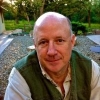
Media center/TV gear talk and setups
new mexico replied to RadoStefanov's topic in General Discussion
'Self noise' = Possible 30+ year old 'hi-fi' electronic components? I don't recall the unit being 'noisy,' myself, back then? But, again - That was a long time ago ... In a galaxy far, far, away. Thanks for the brief blush of nostalgia, Jon. I guess I'll just leave my sleeping dogs lie. Or, sell 'em on eBay. -

Media center/TV gear talk and setups
new mexico replied to RadoStefanov's topic in General Discussion
Jon, A knowing-smile, came upon my face, when I saw you rocking the dbxII 128! (Back in the day ...) I first used the 122. Then, the 128. Also, the 20/20. I still have my 122. And, 128. Long-since stored. (When I started traveling about the world.) Sold the 20/20. (sad-face emoticon) A real pleasure when listening (to the results.) I do wonder how they would sound, to me, these days? How about you? -
... And here, rocking it old school: She was making incense. The boom box, cd, etc was her 'usual thing.' And, being a 'non-pro,' in front of the camera, we all decided, that - To help keep her at ease? ... Best to let her do her 'routine.' We worked around her playing her music - And, although I mic'd all of the steps in her routine (w/ the music pounding) - - We were all mindful, that - The bits and pieces of nat / sync sound, deemed 'important,' were definitely sans music. It seemed to take almost no extra effort, on our part, to accommodate her. And, once we got into her rhythm, it made things go much more smoothly, all around.
-
The following are previews / teasers / excerpts - based on the Friday May 27th premiere on PBS - American Masters: ( Edit: The full 53 minute long episode can be viewed on the link @ the end of this post) The Highwaymen: Friends Till The End – About the Film Frequently referred to as “the Mount Rushmore of country music,” The Highwaymen – Willie Nelson, Waylon Jennings, Johnny Cash, and Kris Kristofferson – were American country music’s first bona fide supergroup, an epic quartet comprised of the outlaw country genre’s pioneering stars. An essential musical and cultural influence, the Grammy-winning group was active from 1985 – 1995: recording three albums, touring the world and acting in the movie Stagecoach (1986). American Masters – The Highwaymen: Friends Till the End, premiering nationwide Friday, May 27, 2016, at 9/8c on PBS (check local schedule) as part of the 30th anniversary season of THIRTEEN’s American Masters series, explores how these men came together and the fruits of their historic collaboration. Produced and directed by four-time Emmy Award-winner Jim Brown (American Masters – Pete Seeger: The Power of Song; Billy Joel: A Matter of Trust – The Bridge to Russia, The Weavers: Wasn’t That A Time!), the documentary features vintage performances, rare, behind-the-scenes footage of life on the road and in the studio with producer Don Was, and new interviews with Nelson; Kristofferson; family members Jessi Colter (country singer and Jennings’ wife), Annie Nelson, Lisa Kristofferson, and John Carter Cash; band members Reggie Young (guitarist) of The Memphis Boys, Mickey Raphael (harmonica player) and Robby Turner (pedal steel guitarist); and managers Mark Rothbaum and Lou Robin. Artists influenced by The Highwaymen, including John Mellencamp, Toby Keith, Marty Stuart, and Ray Benson of Asleep at the Wheel, are also interviewed. Jennings and Cash add their perspective via archival interviews. Performances from a previously unreleased concert film with the group recorded live at Nassau Coliseum in Uniondale, N.Y., in 1990, demonstrate the group’s chemistry and the power of their combined music catalog including “Highwayman,” “Sunday Morning Coming Down,” “Folsom Prison Blues,” “Mammas Don’t Let Your Babies Grow Up To Be Cowboys,” “Always On My Mind,” “Me and Bobby McGee,” “Desperados Waiting For A Train,” “Luckenbach, Texas,” “Silver Stallion” and more. Nelson, Jennings, Cash and Kristofferson liberated American pop and country music from record label-and-producer control to create a new musical landscape where the artists controlled their songwriting, recording and performing. Each had achieved considerable success prior to 1985, at which time they began to strategize about working together to revitalize the country music scene and satisfy their own restless creativity. American Masters – The Highwaymen: Friends Till the End examines how their towering individual personas and mutual friendships meshed to form the group’s collective artistry, their success buttressed by the love and support they gave to each other. “Country music is America’s most popular music and I’m happy to add The Highwaymen to our growing list of master singer/songwriters, from Carole King and Loretta Lynn to Marvin Gaye and Ray Charles,” said Michael Kantor, executive producer of American Masters. “Like many, I only wish I could have seen these giants live in concert, but this film gives you a front row seat and takes you backstage too.” The Highwaymen Live – American Outlaws, a new 3 CD/1 DVD or Blu-ray box set of concert performances — including the complete Nassau Coliseum concert film seen in the American Masters documentary — will be available May 20 from Columbia/Legacy, along with a new single-disc compilation CD, The Very Best of The Highwaymen. The Highwaymen: Live At Nassau Coliseum (a special broadcast edit of the concert film featured on The Highwaymen Live – American Outlaws) is part of special programming premiering on PBS stations as part of June Pledge 2016 (check local listings). Published on May 16, 2016 "They believed in themselves." Director and producer Jim Brown talks about the message of his film, American Masters - The Highwaymen: Friends Til The End. Published on Mar 29, 2016 Discover the story behind the pioneering outlaw country music supergroup that featured Willie Nelson, Waylon Jennings, Johnny Cash and Kris Kristofferson, told through vintage performances and new interviews about life on the road and in the studio. Watch "The Highwaymen: Friends Till the End" premiering Friday, May 27 at 9/8c on PBS (check local listings) Learn more at: http://www.pbs.org/wnet/americanmasters/ “For me, it was heaven,” Kris Kristofferson said. “I was up there on stage with my heroes — the people that I worshipped.” In 1985, Willie Nelson, Waylon Jennings, Johnny Cash, and Kris Kristofferson formed a country supergroup: The Highwaymen. They had already built empires of their own — so what brought them together? In this excerpt from The Highwaymen: Friends Till The End, Willie Nelson, Kris Kristofferson and others talk about working together to revitalize the country music scene and satisfy their own restless creativity. It was the beginning of the outlaw country movement, and also their friendship. “We did nothing we didn’t want to do. And we stood up for things we believed in. And it was a beautiful life that way,” Kris Kristofferson said. In this outtake of The Highwaymen: Friends Till the End, friends and family recall the how Willie Nelson, Kris Kristofferson, Waylon Jennings and Johnny Cash came together, along with their families, for a Christmas special in Montreux in 1984. “The magic in that guitar pull in Montreux in that hotel room – it was tangible; you could feel it in the air. And that was the standard,” said Marty Stuart. In this excerpt clip from The Highwaymen: Friends Till The End, watch Willie Nelson perform “Always On My Mind” at Nassau Coliseum in 1990. Before Waylon Jennings and Willie Nelson started the outlaw country movement, much of the Nashville music scene was controlled by record labels, producers and publishers. Frustrated by the lack of creative control, Willie Nelson moved to Austin, where he encountered a new, youth rock-based audience mixed with a traditional country audience. In this excerpt clip from The Highwaymen: Friends Til The End, Waylon Jennings talks about how he started the outlaw movement, which was epitomized by his 1974 album, “This Time” — produced by Waylon and Nelson. Jennings said in his autobiography: “For us, ‘outlaw’ meant standing up for your rights, your own way of doing things. It felt like a different music, and outlaw was as good a description as any.” How did Kris Kristofferson convince Johnny Cash to record his songs when he was just a janitor? In this outtake from The Highwaymen: Friends Till The End, John Carter Cash — Johnny Cash’s son — recalls Kris Kristofferson going above and beyond to convince his father to record his songs. In this outtake clip from The Highwaymen: Friends Till The End, film director Jon Smalls — who worked on the music video for “The Highwayman” — explains how he got banned from The Glen Canyon Dam after the shoot. Excerpt from Live: American Outlaws CD Liner Notes May 23, 2016 The Highwaymen performing at Nassau Coliseum in Uniondale, N.Y., in 1990. Screenshot from The Highwaymen: Friends Till The End. Courtesy of Sony Music Entertainment. There is a moment around midway through this set’s Nassau concert that focuses the group’s fellowship: Kristofferson, Cash, Jennings and Nelson take turns at Kristofferson’s “The Pilgrim: Chapter 33.” The song is similar to “Sunday Morning Coming Down” — another look at a man who is “Never knowin’ if believin’ is a blessin’ or a curse/Or if the goin’ up was worth the comin’ down…./Runnin’ from his devils, Lord, reachin’ for the stars/And losin’ all he’s loved along the way.” The man is a poet, he’s broken, he passes out on sidewalks, yet his waywardness is essential to the truths he’s searching for—truths that, ultimately, might serve somebody else’s life better than his own, if he can only get his words sober and voice right. It’s a beautiful and heartbreaking performance, and at its end Kristofferson points at each of the other singers and smiles, in a moment of loving friendship and faith. There are several such stories and gestures of fraternity during the concert, including “Desperados Waiting For A Train” — one man’s elegy to a dying friend—and “The Last Cowboy Song,” a requiem for “another piece of America’s lost.” There’s also the heartening looks the singers give one another, the roughhewn grain of their solo and harmony vocals—all testaments to the pleasure and purpose found by standing on a stage together, taking part in having deepened American musical tradition with their indomitable vision and determination. “This night, on the Nassau show,” says Jessi Colter, Jennings’ wife and frequent singing partner. “They were really on it. They were always on it, don’t get me wrong—but that one…fantastic. Maybe it had to do with the moon, the night, the sound system, everybody’s energy,” says Lou Robin, “Johnny was suffering from immense jaw pain throughout the night — he could only be filmed from one side of his face. But everybody knew this would be the show to film. We knew there would be a big crowd, and the guys had now played together for a while.” Willie Nelson agreed. “We wanted to work it out,” he said. “I think it’s one of the best things that’s ever really happened to me, to be able to work with these guys, because these are not only friends of mine; these are heroes. Every day is just wonderful on this tour. Even the bad things that we won’t talk about.” Screenshot from The Highwaymen: Friends Till The End. Courtesy of Sony Music Entertainment. When you watch backstage interviews with the band members, or their conversations from a later documentary, Live Forever, Kris Kristofferson seemed invariably to be of modest temperament. “That was always very humbling to me,” he said recently, “to look down the stage and see John and Waylon and Willie. To be up there with them — you know, it was one of the wonders of my life. These guys were my heroes.” Still, Kristofferson was as formidable as any of the other Highwaymen. Cash, Jennings and Nelson championed and recorded his songs in the late 1960s and early 1970s, when several others on Nashville’s Music Row regarded him with suspicion, even hostility. “When I first heard ‘Bobby McGee,’” Willie Nelson says in an interview here, “I thought, Well, why didn’t I write that? It had all the ingredients of the things I like to see or hear in a song, from all about freedom and traveling, even down to the red bandana, so naturally I related to that song a lot…. Kris must’ve lived a thousand other times in a thousand other places, because he seems to be able to describe all these stories so vividly. That makes him one of the greatest writers of our time.” On another occasion, Nelson said, “Kris gave us a deeper look into the human being, and that added respectability to country music.” Kris Kristofferson performing at Nassau Coliseum in Uniondale, N.Y., in 1990 with The Highwaymen. Screenshot from The Highwaymen: Friends Till The End. Courtesy of Sony Music Entertainment. But Kristofferson’s humility didn’t make him reticent when it came to some matters, and the respect of his friends didn’t spare him of their tempers. “We all have our idiosyncrasies,” Johnny Cash said in the documentary Live Forever. “We never had an argument over religion or our faiths. If we’re treading on strange ground we don’t say anything about it. Politics,” Cash added with a laugh, “is another thing. I like to see Waylon and Kris talk about politics.” Johnny Cash performing at Nassau Coliseum in Uniondale, N.Y., in 1990. Screenshot from The Highwaymen: Friends Till The End. Courtesy of Sony Music Entertainment. Cash recalled an occasion when Kristofferson was performing “Slouching Toward The Millennium”: “Kris started making a speech about how many babies have we killed in Iraq with the bombing? And we’ve destroyed the infrastructure of the country. I didn’t know it at the time but Waylon said General Colin Powell was down in front, just standing there, listening to Kris. I guess Kris knew he was there, but I didn’t until we came off, and Waylon said something to Kris. That really started it. We’re not talking about coming to blows, but we’re talking about keeping the blood flowing.” Jennings later said, “We came pretty close to punching it out. I didn’t say he was all wrong. Main thing I was saying was he shouldn’t have been doing it onstage with three other people on there who didn’t share all of his thoughts.” Mickey Raphael, Willie Nelson’s longtime harmonica player, was present for the incident. “Kris Kristofferson was the rebel,” he says. “Some of his songs were almost protest songs, about Sandinistas, about migrant workers. He was saying, ‘Look at our faults, we can do better.’ Kris would get a little too far left, Waylon would want to reel him back in. ‘You can’t say that to our fans.’ Willie, meantime, would say anything he could to get them all crazy, to stir fire. All opposites. Johnny was a father figure to Kris, but they were polar opposites—alike, but different sides of the spectrum, Johnny Cash, with a picture of Nixon; Kris Kristofferson, Che Guevara. The four covered the hemisphere politically. Sometimes there was tension. Maybe Kris said something, pissed off Waylon. They’d get each other’s goat, mess with each other as brothers would. But from the outside they would band together. ‘Me against my brother, all against the infidel.’” “It wasn’t so amazing that Kris said that with Colin Powell in the audience,” says Annie D’Angelo Nelson. “It’s the fact that the Highwaymen were so diverse, they touched so many people’s lives, that Colin Powell was in the audience. The bottom line was, all these guys believed in peace, but maybe some of them had different ideas about how to attain it.” Willie Nelson performing at Nassau Coliseum in Uniondale, N.Y., in 1990 with The Highwaymen. Screenshot from The Highwaymen: Friends Till The End. Courtesy of Sony Music Entertainment. Indeed, the Highwaymen were big enough to contain America’s truths as well as its arguments. One night Kristofferson sang “Johnny Lobo,” about native American activist John Trudell who had served in Vietnam but felt so dishonored back home that he burned an American flag on the steps of the FBI building in Washington, D.C. Right after “Johnny Lobo,” Johnny Cash—introducing his song “Ragged Old Flag”—told the same audience, “I thank God for all the freedoms we’ve got in this country. I cherish them and I treasure them—even the rights to burn the flag. I’m proud of those rights. But I tell you what, we’ve also got…” He paused, because the crowd had started booing loudly enough to drown him out, then he confidently hushed them. “Let me tell you something — shhh — we also got the right to bear arms, and if you burn my flag, I’ll shoot you. But I’ll shoot you with a lot of love, like a good American.” It was a statement full of extraordinary twists and turns, genuine pride and dark-humored irony—and only Cash could get away with weaving such disparate stances and affectionate sarcasm together. When all was said and done, Johnny Cash looked at America the same way he looked at himself: with forthright regrets and unrelenting hope. One night backstage, Cash overheard Kristofferson’s young son tell another child, “I’ll shoot you.” When Cash learned that the boy had picked up the phrase from Cash’s own speech on stage, Johnny said, “That’s wrong. “I’ll never do that again.” And he never did. Link to: INTERACTIVE: Timeline of The Highwaymen Members and Outlaw Country Movement March 30, 2016 http://www.pbs.org/wnet/americanmasters/interactive-timeline-of-the-highwaymen-members-and-outlaw-country-movement/6985/ Link to full 53 minute episode: ( Note: Video expires on PBS website on June 25, 2016) http://www.pbs.org/wnet/americanmasters/highwaymen-watch-full-film/7383/ . fwiw .. Here's a link to other recent "full episodes" on PBS American Masters (with some expiring soon) http://www.pbs.org/wnet/americanmasters/video/all-video/?type=episodes
-
I post, below ... A possible addition to Jim Feeley's catalogue of self-scribed, classic monikers / signatures? Which, IMO - Are always providential. Usually, self-effacing. And - When coming upon them, after reading your, typically judicious, post(s) - Always elicits a chuckle, Jim F. Thanks! ... Jim "Sound is in the Bag" Feeley ... "Ralphs_soundbag.jpg"
-
Published on May 20, 2016 Bob Boilen is known for being the host and creator of NPR’s popular “All Songs Considered” podcast. But Boilen is also a former musician -- his band was the first ever act to play D.C.’s famous 9:30 Club. Boilen’s new book, “Your Song Changed My Life,” recounts the history of modern music through the voices he has encountered, and he joins Jeffrey Brown at the 9:30 Club to share a few of them.

.png.279748a58a2b862b7aa5f3b84126e232.png)



